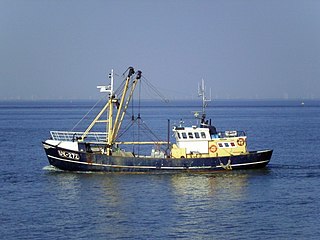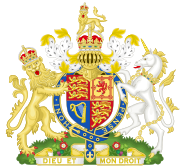
Whilst the House of Lords of the United Kingdom is the upper chamber of Parliament and has government ministers, for many centuries it had a judicial function. It functioned as a court of first instance for the trials of peers and for impeachments, and as a court of last resort in the United Kingdom and prior, the Kingdom of Great Britain and the Kingdom of England.

The Court of Session is the supreme civil court of Scotland and constitutes part of the College of Justice; the supreme criminal court of Scotland is the High Court of Justiciary. The Court of Session sits in Parliament House in Edinburgh and is both a trial court and a court of appeal. The court was established in 1532 by an Act of the Parliament of Scotland, and was initially presided over by the Lord Chancellor of Scotland and had equal numbers of clergy and laity. The judges were all appointed from the King's Council. As of May 2017, the Lord President was Lord Carloway, who was appointed on 19 December 2015, and the Lord Justice Clerk was Lady Dorrian, who was appointed on 13 April 2016.

The High Court of Justiciary is the supreme criminal court in Scotland. The High Court is both a trial court and a court of appeal. As a trial court, the High Court sits on circuit at Parliament House or in the adjacent former Sheriff Court building in the Old Town in Edinburgh, or in dedicated buildings in Glasgow and Aberdeen. The High Court sometimes sits in various smaller towns in Scotland, where it uses the local sheriff court building. As an appeal court, the High Court sits only in Edinburgh. On one occasion the High Court of Justiciary sat outside Scotland, at Zeist in the Netherlands during the Pan Am Flight 103 bombing trial, as the Scottish Court in the Netherlands. At Zeist the High Court sat both as a trial court, and an appeal court for the initial appeal by Abdelbaset al-Megrahi.

In English law, natural justice is technical terminology for the rule against bias and the right to a fair hearing. While the term natural justice is often retained as a general concept, it has largely been replaced and extended by the general "duty to act fairly".

MacCormick v Lord Advocate 1953 SC 396 was a Scottish constitutional law case and Scottish legal action on whether Queen Elizabeth II was entitled to use the numeral "II" as her regnal number in Scotland, as there had never been an earlier Elizabeth reigning in Scotland.

R v Secretary of State for Transport was a judicial review case taken against the United Kingdom government by a company of Spanish fishermen who claimed that the United Kingdom had breached European Union law by requiring ships to have a majority of British owners if they were to be registered in the UK. The case produced a number of significant judgements on British constitutional law, and was the first time that courts held that they had power to restrain the application of an Act of Parliament pending trial and ultimately to disapply that Act when it was found to be contrary to EU law.

The courts of Scotland are responsible for administration of justice in Scotland, under statutory, common law and equitable provisions within Scots law. The courts are presided over by the judiciary of Scotland, who are the various judicial office holders responsible for issuing judgments, ensuring fair trials, and deciding on sentencing. The Court of Session is the supreme civil court of Scotland, subject to appeals to the Supreme Court of the United Kingdom, and the High Court of Justiciary is the supreme criminal court, which is only subject to the authority of the Supreme Court of the United Kingdom on devolution issues and human rights compatibility issues.

The Supreme Court of the United Kingdom is the final court of appeal in the United Kingdom for all civil cases, and for criminal cases originating in England, Wales and Northern Ireland. As the United Kingdom’s highest appellate court for these matters, it hears cases of the greatest public or constitutional importance affecting the whole population.

The Inner House is the senior part of the Court of Session, the supreme civil court in Scotland; the Outer House forms the junior part of the Court of Session. It is a court of appeal and a court of first instance. The chief justice is the Lord President, with their deputy being the Lord Justice Clerk, and judges of the Inner House are styled Senators of the College of Justice or Lords of Council and Session. Criminal appeals in Scotland are handled by the High Court of Justiciary sitting as the Court of Appeal.

The Burmah Oil Company was a leading British oil company which was once a constituent of the FTSE 100 Index. In 1966, Castrol was acquired by Burmah, which was renamed Burmah-Castrol. BP Amoco purchased the company in 2000.

United Kingdom administrative law is part of UK constitutional law that is designed through judicial review to hold executive power and public bodies accountable under the law. A person can apply to the High Court to challenge a public body's decision if they have a "sufficient interest", within three months of the grounds of the cause of action becoming known. By contrast, claims against public bodies in tort or contract are usually limited by the Limitation Act 1980 to a period of 6 years.

The United Kingdom constitutional law concerns the governance of the United Kingdom of Great Britain and Northern Ireland. With the oldest continuous political system on Earth, the British constitution is not contained in a single code but principles have emerged over centuries from common law statute, case law, political conventions and social consensus. In 1215, Magna Carta required the King to call "common counsel" or Parliament, hold courts in a fixed place, guarantee fair trials, guarantee free movement of people, free the church from the state, and it enshrined the rights of "common" people to use the land. After the English Civil War and the Glorious Revolution 1688, Parliament won supremacy over the monarch, the church and the courts, and the Bill of Rights 1689 recorded that the "election of members of Parliament ought to be free". The Act of Union 1707 unified England, Wales and Scotland, while Ireland was joined in 1800, but the Republic of Ireland formally separated between 1916 and 1921 through bitter armed conflict. By the Representation of the People Act 1928, almost every adult man and woman was finally entitled to vote for Parliament. The UK was a founding member of the International Labour Organization (ILO), the United Nations, the Commonwealth, the Council of Europe, and the World Trade Organization (WTO).

The royal prerogative is a body of customary authority, privilege, and immunity attached to the British monarch, recognised in the United Kingdom. The monarch is regarded internally as the absolute authority, or "sole prerogative", and the source of many of the executive powers of the British government.

The constitution of the United Kingdom or British constitution comprises the written and unwritten arrangements that establish the United Kingdom of Great Britain and Northern Ireland as a political body. Unlike in most countries, no official attempt has been made to codify such arrangements into a single document, thus it is known as an uncodified constitution. This enables the constitution to be easily changed as no provisions are formally entrenched.

Attorney-General v De Keyser's Royal Hotel Limited is a leading case in UK constitutional law decided by the House of Lords in 1920 which exhaustively considered the principles on which the courts decide whether statute has fettered prerogative power. It decided that the royal prerogative does not entitle the Crown to take possession of a subject's land or buildings for administrative purposes connected with the defence of the realm without paying compensation. It is the authority for the statement that the royal prerogative is placed in abeyance when statute law can provide a legal basis for an action.

The War Damage Act 1965 is an act of United Kingdom Parliament which exempts the Crown from liability in respect of damage to, or destruction of, property caused by acts lawfully done by the Crown during, or in contemplation of the outbreak of, a war in which it is engaged. Enacted in the aftermath of the prominent case Burmah Oil Co. v Lord Advocate, it is a rare piece of British legislation with retroactive effect.

Scots law is the legal system of Scotland. It is a hybrid or mixed legal system containing civil law and common law elements, that traces its roots to a number of different historical sources. Together with English law and Northern Irish law, it is one of the three legal systems of the United Kingdom. Scots law recognises four sources of law: legislation, legal precedent, specific academic writings, and custom. Legislation affecting Scotland and Scots law is passed by the Scottish Parliament on all areas of devolved responsibility, and the United Kingdom Parliament on reserved matters. Some legislation passed by the pre-1707 Parliament of Scotland is still also valid.

The judiciary of Scotland are the judicial office holders who sit in the courts of Scotland and make decisions in both civil and criminal cases. Judges make sure that cases and verdicts are within the parameters set by Scots law, and they must hand down appropriate judgments and sentences. Judicial independence is guaranteed in law, with a legal duty on Scottish Ministers, the Lord Advocate and the Members of the Scottish Parliament to uphold judicial independence, and barring them from influencing the judges through any form of special access.

R (Miller) v Secretary of State for Exiting the European Union is a United Kingdom constitutional law case decided by the United Kingdom Supreme Court on 24 January 2017, which ruled that the British Government might not initiate withdrawal from the European Union by formal notification to the Council of the European Union as prescribed by Article 50 of the Treaty on European Union without an Act of Parliament giving the government Parliament's permission to do so. Two days later, the government responded by bringing to Parliament the European Union Act 2017 for first reading in the House of Commons on 26 January 2017. The case is informally referred to as "the Miller case" or "Miller I".

R (Miller) v The Prime Minister and Cherry v Advocate General for Scotland, also known as Miller II and Miller/Cherry, were joint landmark constitutional law cases on the limits of the power of royal prerogative to prorogue the Parliament of the United Kingdom. Argued before the Supreme Court of the United Kingdom in September 2019, the case concerned whether the advice given by the prime minister, Boris Johnson, to Queen Elizabeth II that Parliament should be prorogued in the prelude to the United Kingdom's withdrawal from the European Union was lawful.
















